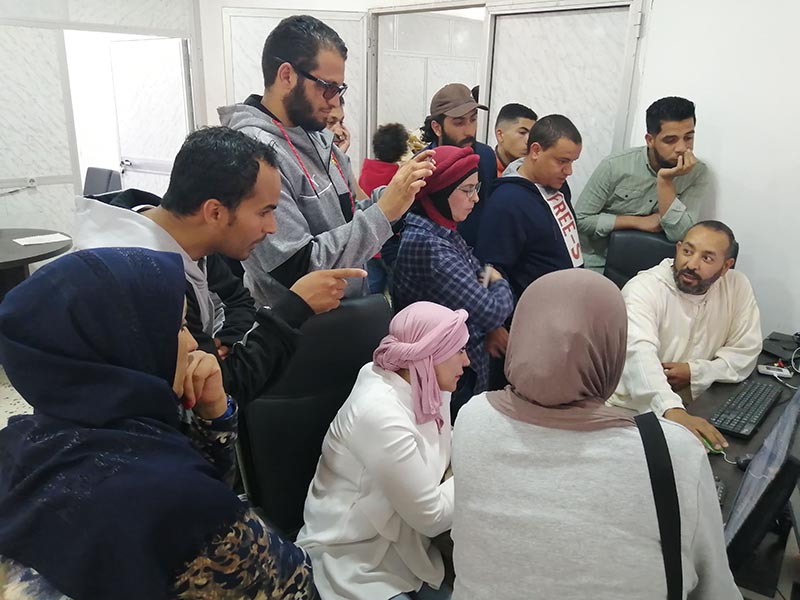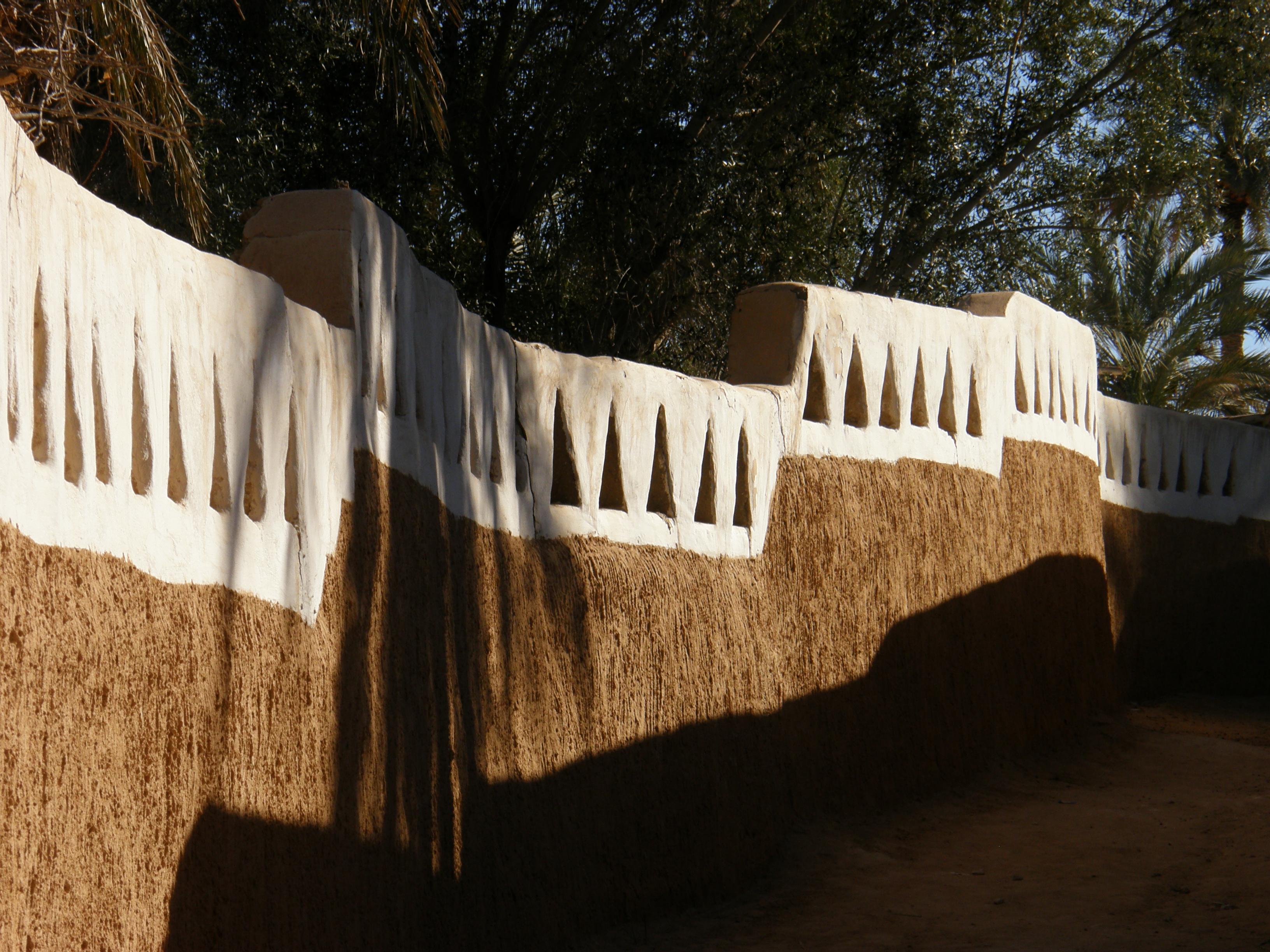
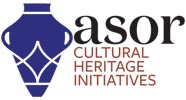

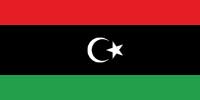
Digitizing Manuscripts of the Trans-Saharan Trade
In partnership with the Ghadames Society for Heritage and Manuscripts, and with the support of the Whiting Foundation and the Hill Museum and Manuscript Library, ASOR continues to facilitate the digitization of an important collection of manuscripts within the UNESCO World Heritage site of Ghadames, Libya.
Talal Bariun and Will Raynolds
For more than fifteen centuries, camel caravans stopped to rest and resupply in the oasis of Ghadames, near the point where Libya now intersects the borders of Tunisia and Algeria. This ancient crossroads connected an east-west route running from Egypt to Mauritania, and a north-south route linking the Mediterranean coast to Kano and the polities of the Niger River valley on the far side of the Sahara desert.
Along with goods piled high on camel saddles, the caravan trade facilitated the flow of religion and scientific concepts, shaping the culture of the entire region. This flow, as well as the network of people which sustained it over vast distances, depended on a sophisticated system of documentation and accounting in several languages. Ghadames was one of the brightest nodes along this network and became an important repository of manuscripts documenting these relationships which managed to thrive across inhospitable stretches of sand. Economic and political dealings, taxes and protection fees, scientific manuscripts, the successes and disappointments of individual seasons, and efforts to wage war and build peace over years–all found their way into the archives maintained by the merchant and juridical families of Ghadames.
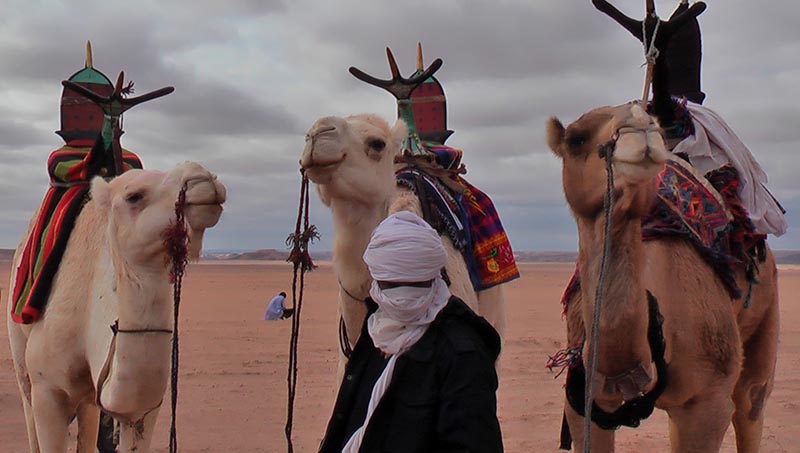
Building on the efforts of his father, Mr. Qasim Yushaa has been working tirelessly to catalog and digitize these collections. In 2013, he founded the Ghadames Society for Heritage and Manuscripts, the first Libyan NGO working in this field. The all-volunteer membership of the Society gathers to collect, document and preserve the city’s manuscripts. “We started with just a few people and an idea,” Mr. Yushaa recalled, “then, bit by bit, we gathered donated equipment and assembled a team of volunteers with diverse experience to lend to the project.”
Nearly two years ago, Mr. Yushaa contacted ASOR seeking assistance. With the financial support of the Whiting Foundation and the expertise of the Hill Museum and Manuscript Library (HMML), ASOR embarked on this new partnership with a digitization training workshop in Tunis in February. Mr. Walid Mourad, field director and master trainer at HMML, led the workshop for five members of the Ghadames group, who learned to use high quality equipment and rigorous standards to support their ongoing digitization work. According to Mr. Yushaa, “Before the workshop, we only had a scanner in our office, and work proceeded very slowly as we scanned page after page. The tethered camera set up that Walid introduced us to has been a dramatic improvement, and we are grateful that ASOR sent us back to Ghadames with all of the equipment we used during training.”
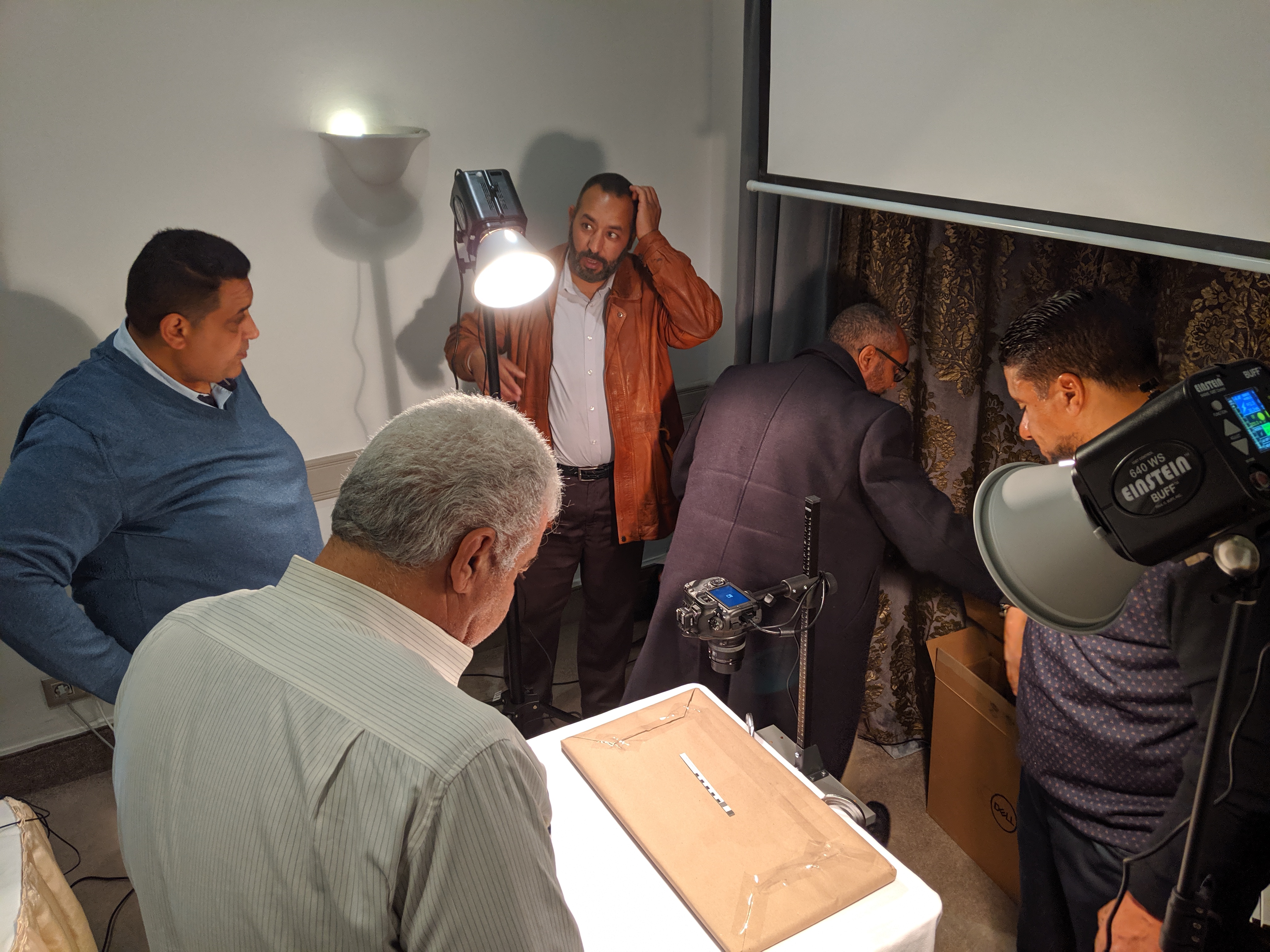
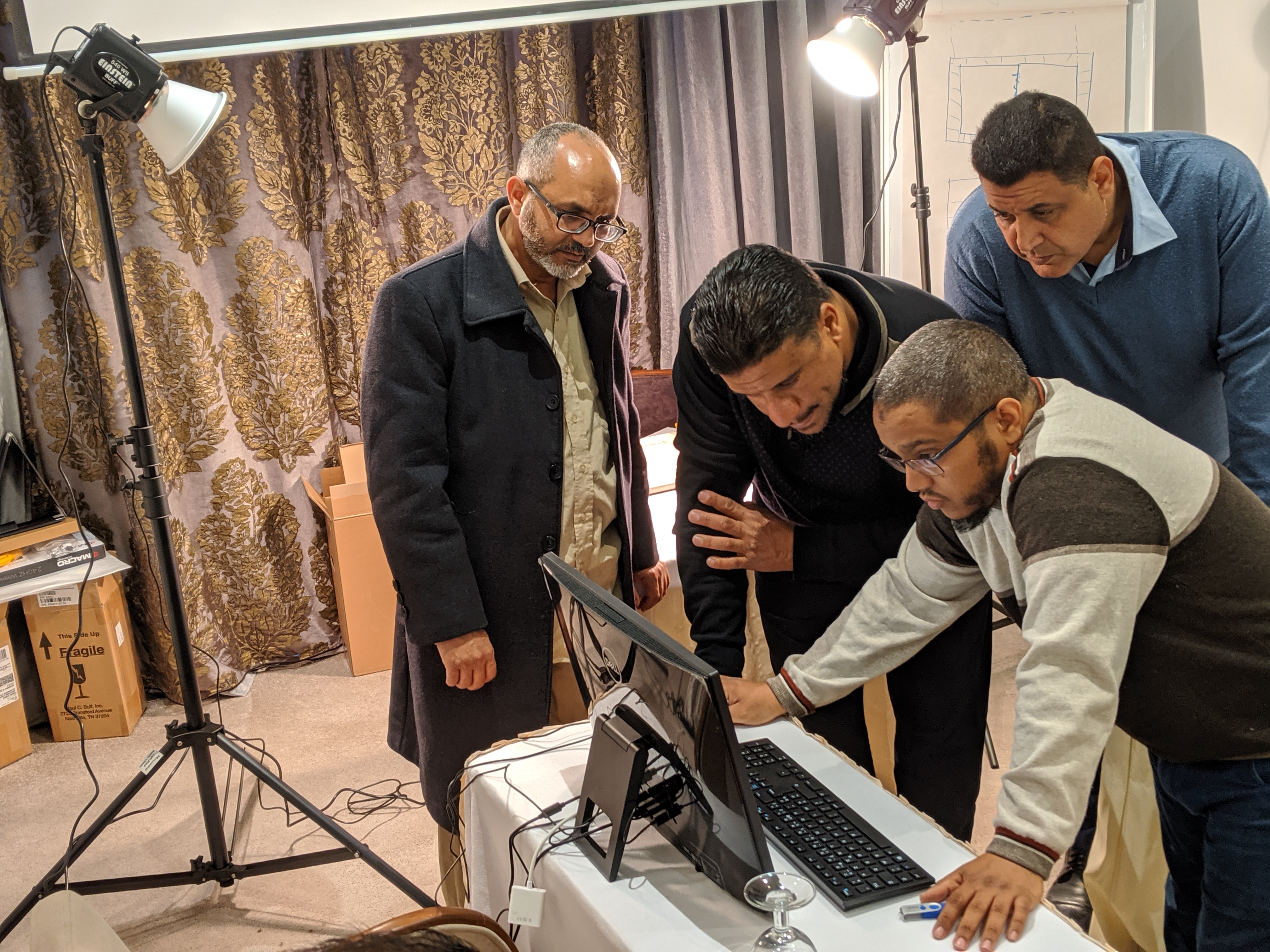
The team from Ghadames returned with the equipment and installed the digitization studio in their office. While progress has been delayed during the COVID-19 pandemic, they have digitized a number of manuscripts and rare books, which they share via their Facebook page and website. While the arid environment of Ghadames has helped large collections of manuscripts survive through the centuries, many of these documents are now in fragile condition and require conservation. The association lacks the expertise to treat the manuscripts but is working to gradually organize them according to topic and begin the long term project of digitization.
Mr. Yushaa encourages volunteers and others in the community to spend time in the office by offering free high-speed internet and coffee and tea. He has offered computer literacy courses for older residents of the city as a way to draw them in, providing them basic skills which they might use to contribute to the Society as well as encouraging their participation in the Society’s ongoing work to record oral histories of the city.
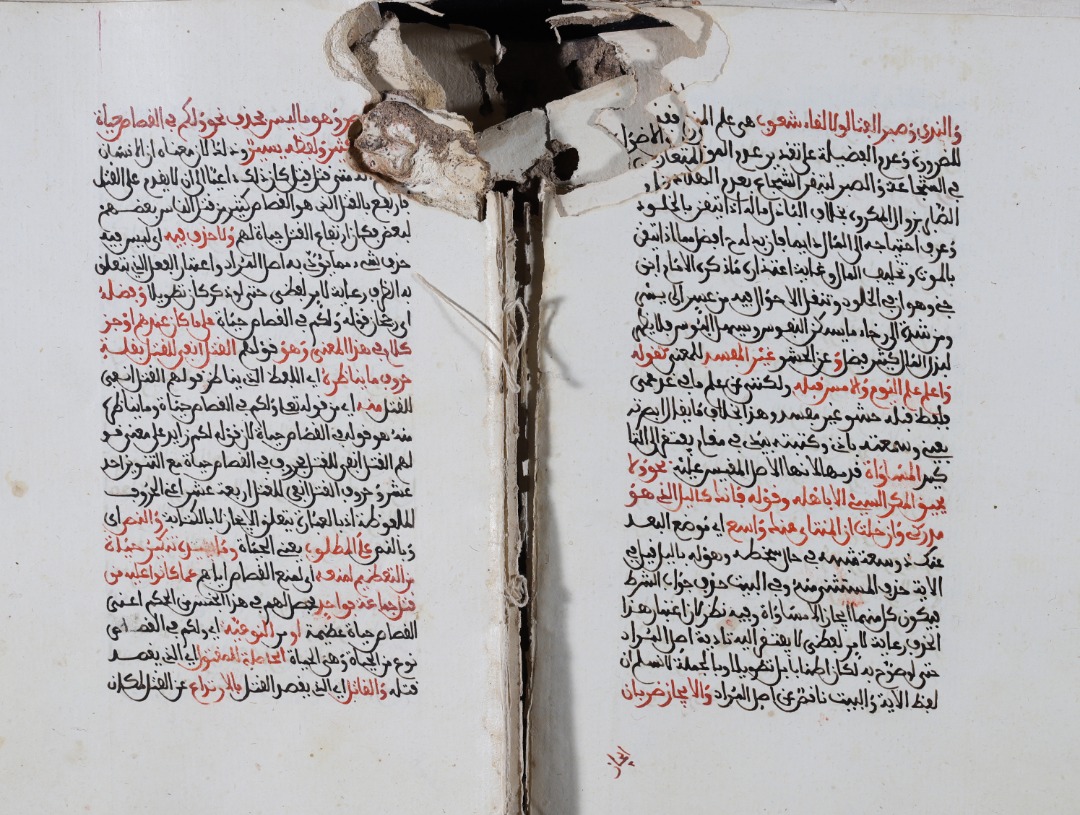
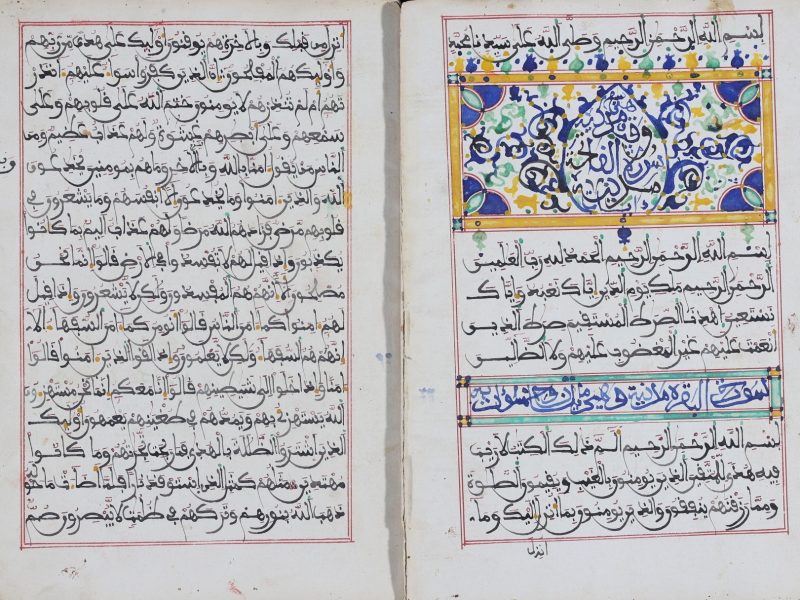
Immediately prior to the pandemic, ASOR hosted a multi-day volunteer event in Ghadames. We visited the headquarters of the Society, guided by Mr. Yushaa, and the work impressed all who attended. Beyond manuscripts, the Society has also been digitizing rare tape recordings of music festivals in Ghadames and producing cultural videos for its YouTube channel. Mr. Yushaa emphasized that beyond digitization, the Society has a great need for the relevant conservation expertise and storage supplies to enable them to properly preserve their collections. “We hope that as we grow as an organization, we will eventually be able to hire a staff with the right expertise. For now, we rely on volunteers fueled by fast internet and free coffee,” he explained.
In the meantime, the Society continues to share the results of their digitization with HMML, one of the great global repositories of digitized manuscripts. Despite the current constraints on travel, Walid Mourad from HMML remains in regular contact with the team in Ghadames, providing encouragement and assistance as needed. According to Father Columba Stewart, Executive Director of HMML, “Thanks to the Whiting-ASOR project in Ghadames, we’re able to provide access to an historic but inaccessible collection of manuscripts with intellectual ties to HMML’s work in Mali and in the Middle East. The courage of the local team as their country is torn apart in war inspires us at HMML in our own commitment to preserving heritage wherever and however it is endangered.”
